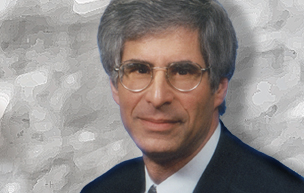The late British Prime Minister Winston Churchill once summed up the essence of democratic government in a wry aphorism, “Democracy is the worst form of government except for all those other forms that have been tried.”
Indeed, democracy is a messy, factionalized, noisy and inefficient way of making political decisions, but its strengths — broader citizen involvement and transparent decision-making which subject elected officials to both public scrutiny and accountability at the ballot box — far outweigh its shortcomings.
Lewiston City Council’s dynamic duo of Rick LaChapelle and Lee Clement, together with two other councilors often allied with them, appear to have a problem working within a centerpiece of Maine’s democratic framework — the Freedom of Access Act (FOAA). They’re also hypersensitive to criticism or dissent and quick to retaliate against those who question their motives or methods.
The FOAA mandates that state and local governmental bodies meet and make decisions in sessions which are open to the public and that “clandestine meetings, conferences, or meetings held on private property without proper notice and ample opportunity for attendance by the public not be used to defeat the purposes” of the Act.
Lewiston’s website emphasizes that the FOAA is “essential to ensuring continued trust and confidence in our government.”
LaChapelle, Clement and company may have either violated the FOAA or edged right up to the line of what’s permissible under the Act and then waged war against those who called them out for doing so. There’s no indisputable evidence of this, but their critics have charged that their practice of gathering at private venues, then introducing blitzkrieg resolutions before the Council and voting as a bloc to pass them, suggests some level of pre-orchestration.
The issue came to a boil at an Oct. 17 council meeting, when, by a vote of 4-3, LaChapelle and Clement engineered the removal of council president Linda Scott, replacing her with LaChapelle, and passed a resolution censuring councilor Scott Harriman. The reason: Scott and Harriman had criticized them for holding private meetings to discuss public business.
This was in response to a previous council session on Oct. 3, when Scott and Harriman had accused the pair, along with councilors Bob McCarthy and Larry Pease and two Planning Board members, of gathering at the Cage bar in Lewiston to discuss a potential resolution supporting CMP with regard to Question 3, the upcoming referendum vote on creating a publicly-owned power utility.
At a Sept. 19 Council meeting, Scott was also critical of an “emergency” resolution LaChapelle and Clement rammed through to oppose any renewal of a partnership between the Lewiston school system and Maine Inside Out, a nonprofit that assists teens in the juvenile justice system through the arts, peer groups and other resources.
Maine Attorney General Andrew Frey, after viewing videos of the Sept. 19 and Oct. 3 sessions, sent a letter to council members expressing his concern that there might be a “lack of understanding” about what the FOAA requires of public officials. He noted that “there may have been a majority of members that coordinated outside of public view” on the Inside Out resolution and that “some number of councilors called an impromptu meeting at a local bar” to discuss a possible resolution relating to Question 3.
LaChapelle, in response, pointed to a legal opinion by Martin Eisenstein, the city’s attorney, as complete vindication of his position that the FOAA had not been violated. Eisenstein’s opinion was nothing of the sort. It was narrowly drafted and filled with disclaimers, including that he had not witnessed the Cage meeting, that he was basing his opinion solely on a report of what occurred “by a person at the meeting,” and that discussions of School Committee issues or a pending state referendum concerned matters outside the City Council’s decision-making authority anyway and thus technically were not meetings covered by the FOAA.
LaChapelle also claimed the meeting at The Cage had an entirely innocent purpose, namely that it was just an occasion for the Council and Planning Board to “attend a celebration of the accomplishments we were able to do.”
In fact, it’s impossible to know exactly what was discussed at the Cage tete-a-tete. While the bar offers pool, cribbage, music and televised sporting events, it is not equipped with audio-visual equipment to record and transmit its patrons’ conversations.
Which is just the point! FOAA, with a few narrow exceptions, requires that meetings be open to the public and a record of the proceedings kept so that the widest possible audience can learn exactly what’s gone on. Without such public exposure, off-site gatherings of councilors can easily turn into caucuses to solidify their positions on issues about to come before the Council for a vote.
LaChapelle and Clement have complained loudly that the critiques of Scott and Harriman are just political hit jobs intended to affect the November elections. I disagree. They involve an important issue which the electorate needs to be made aware of. Even if they did not cross the line of illegality, they behaved in a way that created the appearance of impropriety.
In hockey, those who don’t play by the rules can be penalized by the referee with a time-out. In politics, they can be penalized by the electorate by being voted out office.
Elliott Epstein is a trial lawyer with Andrucki & King in Lewiston. His Rearview Mirror column, which has appeared in the Sun Journal for 17 years, analyzes current events in an historical context. He is also the author of “Lucifer’s Child,” a book about the notorious 1984 child murder of Angela Palmer. He may be contacted at epsteinel@yahoo.com
Send questions/comments to the editors.


